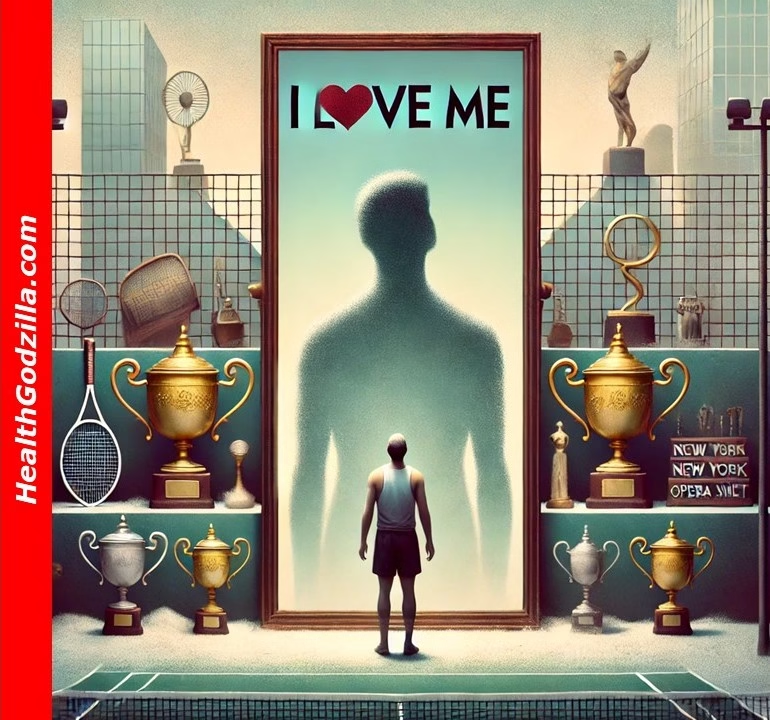
The Burden of Being Number One
The Fragile Crown often reveals itself in unexpected moments. For instance, on a bitter winter night in New York, the opera had ended, yet the city outside was no stage. There, the cold was sharp, biting through coats and soon turning breaths into fog. Since taxis were scarce, the crowd that had shared enchantment minutes before now jostled in the streets, each soul seeking escape from the icy air.
I stood among them, restless, shivering—yet not only from the cold. In truth, I craved warmth, yes, but also something less tangible: validation. Proof. An unseen hand telling me I was not like the others.
Then, as if the universe heard, a taxi slid into view. Suddenly, its headlights sliced the night, and next the car stopped before me, its door handle aligning perfectly with my hand. I claimed it—not opened it, but claimed it—as though it were my birthright.
“You were different,” the driver said as I settled inside. Immediately, his words lit a fire deeper than the heater ever could. I smiled, savoring that moment. After all, I wasn’t just someone who had caught a cab; I was special. Different. Unique.
Yet later, as the streets blurred past, a question gnawed at me: what, really, was I trying to prove? That I was better? That the world should bend toward me, even in something as trivial as a taxi on a frozen night?
Sawdust and Rat Poison
Years later, I would see this same hunger mirrored in John McEnroe—the genius of tennis, the fiery number one. Talent pulsed through him like a relentless river, carrying him to the highest courts of the world. Yet his throne was uneasy, for he carried The Fragile Crown.
McEnroe lived in the fixed belief that talent alone defined him. Every match was not just a contest but a referendum on his superiority. He wasn’t merely trying to win; he was trying to prove he was different.
And sometimes, this obsession showed itself in the smallest of details.
There was the day he reached for sawdust—a simple ritual to dry his palms. But the grains were too fine, not to his liking. To anyone else, it would have been a passing irritation. To McEnroe, it was betrayal. He knocked over the can, raging as though poisoned. “You call that sawdust? This looks like rat poison!”
His agent scrambled, twenty dollars poorer, to fetch coarser dust by bribing a worker to grind wood on the spot. This was life at the summit: even sawdust had to bow before the king.
For McEnroe, these petty victories mattered. They whispered to him what the world whispered to me that night in the taxi: you are different. You are superior.
But beneath the fury and the entitlement lurked a quieter fear—one that McEnroe himself admitted in moments of candor: if you are somebody when you succeed, what are you when you don’t?
The Fragile Crown
This is the real burden of being number one. The trophies are heavy, yes, but heavier still is the crown of superiority—the need to always prove, to always dominate, to always extract from the world some evidence that you are set apart.
The danger is not in believing you are unique; each life is unrepeatable. The danger is in equating uniqueness with worth, and worth with rank. Then every compliment is fuel, every silence a wound, every failure a small death.
On good days, the universe conspires—a taxi stops at your feet, a driver utters the perfect line, applause rains down like benediction. But what about the other days? The nights when the taxis pass you by, when the sawdust feels wrong, when the crowd moves on without noticing?
A life lived in that pursuit is brittle. Dependent. Trapped.
A Different Light
Others have walked the same heights but with lighter steps. Michael Jordan, hailed as a god on the court, spoke often not of destiny but of practice—thousands of hours, thousands of failures. Chuck Yeager, the man who broke the sound barrier, laughed at the idea of “natural-born pilots.” He knew his wings were not gifts from heaven but the result of years of relentless effort.
These men carried greatness not as The Fragile Crown that breaks under the weight of superiority, but as a burden they chose, lifted, and strengthened by. Their worth was not measured by dominance over others, but by how far they could stretch themselves beyond yesterday.
Returning to the Night
And so I return, in memory, to that frozen New York night. The taxi door in my hand. The driver’s words. The warmth blooming in my chest.
Once, I believed that moment meant I was different, destined. Now, I see it simply as what it was—a ride home, a fleeting kindness, a coincidence dressed in poetry. My worth was never written in that moment, nor in McEnroe’s sawdust, nor in the applause of strangers.
It lives in effort, in growth, in the quiet work no one sees.
The Fragile Crown dissolves when you stop needing to be number one. And in that release, perhaps, lies the truest kind of victory.
🌼 Articles You May Like
From metal minds to stardust thoughts—more journeys await:
- AOL-Time Warner failure: Merger, mindsets, and market myths. Explore culture clash, transient advantage, primacy, and antitrust risks.
- Biodiversity and nutrition: Reforming diets through agrobiodiversity. Policy, Traditional and Indigenous Foods, and Scientific Relevance.
Curated with stardust by Organum & Artista under a sky full of questions.
📚 Principal Sources
- Dweck, C. S. (2006). Mindset: The new psychology of success. Random House.
- McEnroe, J., & Kaplan, J. (2002). You cannot be serious. G.P. Putnam’s Sons.
- Wolfe, T. (1979). The right stuff. Farrar, Straus and Giroux.
Relevant chapters and sections were interpreted through a narrative lens rather than cited academically.

Leave a Reply